- Ecostar
- Russia
- Sergei Lazarev
- Vladivostok
- Far East and Arctic Development Corporation
- tyre
- recycling
- recover
Demand For Tyre Recycling Growing In Russian Far East: Ecostar Factory
- By Gaurav Nandi
- January 10, 2025
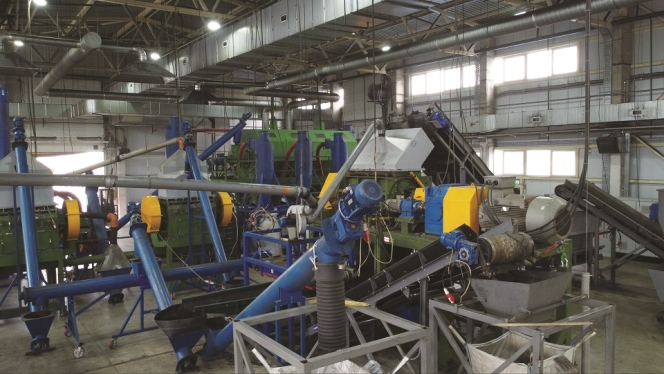
Russia's tyre recycling industry has grown significantly in recent years due to increasing environmental concerns and government regulations aimed at reducing landfill waste. The country generates millions of tonnes of used tyres annually, with many initiatives focusing on recycling them into rubber granules, fuel and construction materials. Key players in the industry include local companies and a few foreign investments with major recycling plants concentrated around Moscow and other industrial regions.
However, the Russian Far Eastern region, referred to the vast, easternmost part of the country that borders the Pacific Ocean, still struggles to deal with the disposing of end-of-life (EOL) tyres.
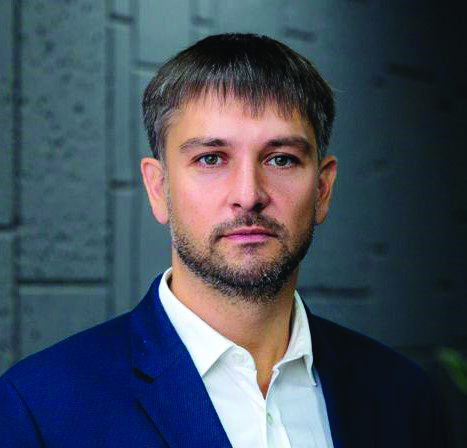 According to Ecostar Factory Co-founder Sergei Lazarev, “Vladivostok, the largest city in Russia's Far East, ranks fifth in the country for vehicles per capita, making it the region's leader in vehicle density. This results in a growing volume of waste tyres annually, posing a significant environmental challenge. Due to the vast distances, transporting used tyres to recycling facilities in central Russia is prohibitively expensive, inflating both the recycling costs and the prices of products made from recycled materials. The lack of local recycling infrastructure exacerbates the problem, underscoring the need for regional solutions to manage tyre waste more efficiently and sustainably.”
According to Ecostar Factory Co-founder Sergei Lazarev, “Vladivostok, the largest city in Russia's Far East, ranks fifth in the country for vehicles per capita, making it the region's leader in vehicle density. This results in a growing volume of waste tyres annually, posing a significant environmental challenge. Due to the vast distances, transporting used tyres to recycling facilities in central Russia is prohibitively expensive, inflating both the recycling costs and the prices of products made from recycled materials. The lack of local recycling infrastructure exacerbates the problem, underscoring the need for regional solutions to manage tyre waste more efficiently and sustainably.”
“With 15 years of experience in tyre recycling, our company is well-positioned to meet the growing demand for tyre recycling in the Russian Far East. The new facility will allow us to recycle over 10,000 tonnes of ELT annually and meet market needs accurately. We also plan to double this capacity within the next five years, which is especially crucial in regions like the Russian Far East, where transportation costs are high and local recycling infrastructure is lacking. This expansion will help address regional tyre waste challenges more effectively,” he added.
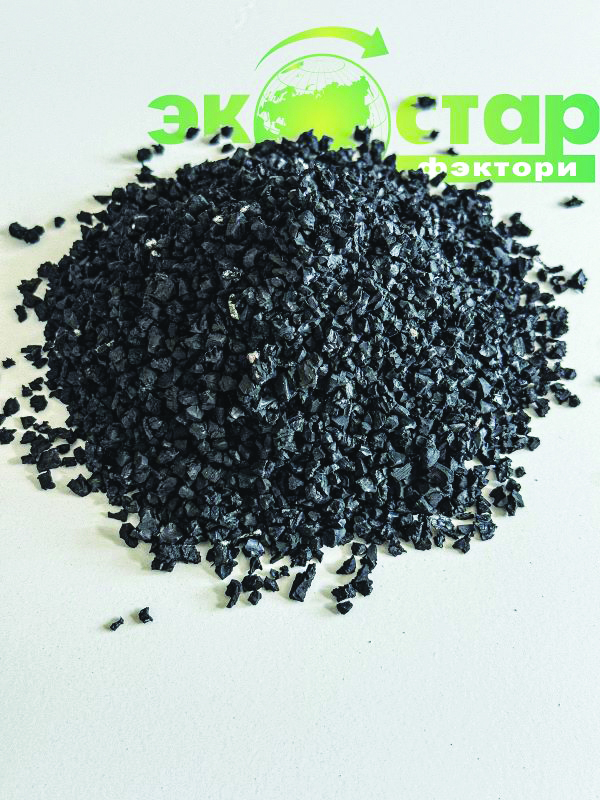 A total of USD 500,000 was invested in the new tyre recycling unit, financed through a mix of 30 percent capital and 70 percent bank loans. The seven percent interest rate, subsidised by the Primorye Government Guarantee Fund and the Federal Government Fund for SMEs, highlights the strategic backing you’ve received. Specialising in recycling ELT tyres into rubber crumb, this setup not only aligns with growing sustainability efforts but also demonstrates the effectiveness of public-private cooperation in fostering business expansion and environmental impact in Russia’s Far East.
A total of USD 500,000 was invested in the new tyre recycling unit, financed through a mix of 30 percent capital and 70 percent bank loans. The seven percent interest rate, subsidised by the Primorye Government Guarantee Fund and the Federal Government Fund for SMEs, highlights the strategic backing you’ve received. Specialising in recycling ELT tyres into rubber crumb, this setup not only aligns with growing sustainability efforts but also demonstrates the effectiveness of public-private cooperation in fostering business expansion and environmental impact in Russia’s Far East.
The Far East and Arctic Development Corporation (FEDC) played a crucial role in the tyre recycling project’s success by providing a 17.3-acre land lot and essential infrastructure. This included telecommunications, access roads, power supply, water supply, water disposal and natural gas supply. Additionally, FEDC offered tax benefits, making it a key partner in the project’s development, facilitating smoother operations and reducing overhead costs. This comprehensive support has been instrumental in advancing the project in the Russian Far East.
Promoting recycling
The company's operations, which focus on recycling ELT tyres without thermal methods like pyrolysis due to environmental concerns, were nearly derailed when the ruble-dollar exchange rate doubled in 2022, making equipment and construction prohibitively expensive.
Despite purchasing Chinese machinery, adjustments were needed due to differences in tyre composition, particularly the amount of cord fibre. The company plans to recycle 20 years’ worth of accumulated tyre waste and supply crumb rubber to playgrounds, stadiums and road projects, boasting the only facility in the region certified to meet government sanitary standards.
With no direct competitors in the Primorye region, the company remains committed to expanding operations despite these challenges.
Answering how the new plant supports broader recycling goals, Lazarev said, “The new plant supports the broader goals of the company by serving as a central hub for tyre recycling in the Russian Far East. We operate facilities in five regions including Magadan, Kamchatka, Sakhalin, Khabarovsk and Primorye and plan to upgrade them within the next three years to produce rubber chips, which will be transported to the main facility in Primorye for further processing. Additionally, we aim to invest in research and development to develop additives for bitumen, enhancing its use in road construction projects. This strategy is key to expanding recycling capabilities beyond 10,000 tonnes annually and promoting sustainable infrastructure development.”
The company will source tyre waste primarily from transportation and tyre service companies. To ensure quality, it has implemented a comprehensive management system designed to produce clean, precisely sized crumb rubber. The triple cleaning process removes metal and cord fibre, while its proprietary qualification system ensures four specific size fractions of crumb rubber are achieved.
Alluding to European Union (EU) directive on crumb rubber infill ban, he noted, “Regarding the EU ban on rubber crumb in artificial turf, Russia has no such restrictions. In fact, a recent Russian government act (08/28/2024) mandates the use of rubber crumb in sports infrastructure and road construction. We have also obtained a special health certificate allowing the use of its crumb rubber in outdoor playground construction.”
Addressing challenges
Russia imports tyres primarily from China, which is the largest supplier, offering a wide range of products including passenger, truck and industrial tyres. South Korea follows, known for its high-quality passenger and performance tyres, while Japan contributes advanced technology and speciality tyres. Belarus, as a neighbouring country, exports various tyre products, particularly for commercial vehicles. Turkey has also been increasing its market presence with competitive prices and quality. Additionally, some European Union countries export tyres to Russia, although trade dynamics are influenced by tariffs and geopolitical factors.
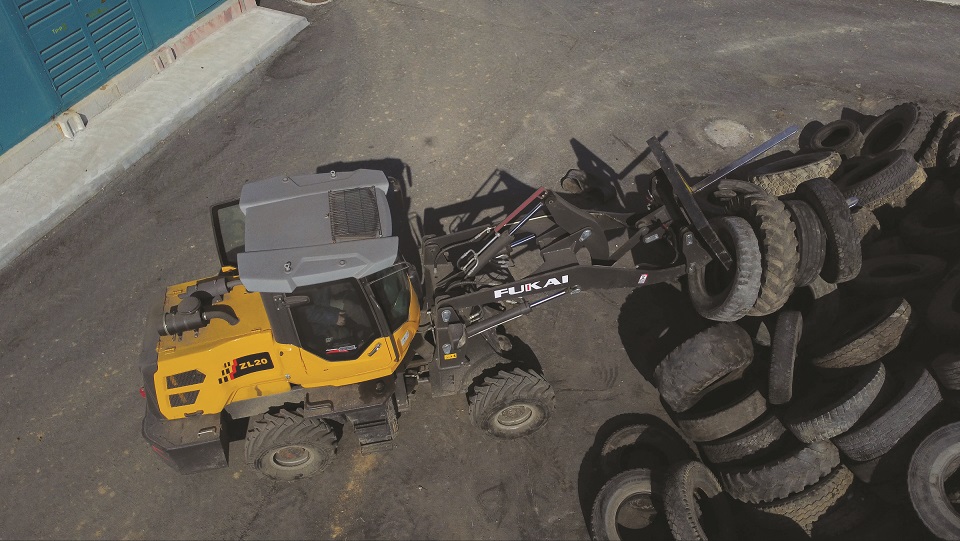
Such a wide array of tyres poses challenge for recyclers. Commenting on the same, the executive said, “The plant was initially scheduled to open in August 2023. The company faced significant challenges due to currency fluctuations, infrastructure delays and regulatory hurdles. Despite purchasing Chinese machinery, adjustments were needed due to differences in tyre composition between China and Japan, particularly the amount of cord fibre. The lack of suitable land with the necessary infrastructure and meeting strict ecological standards are further obstacles.”
“We are currently facing a staff shortage across all skill levels, from low-skilled to highly qualified personnel. To address this, we plan to recruit workers from other regions of Russia and internationally. Recently, we hired five individuals from India on one-year contracts, providing them with comprehensive benefits that include accommodation, food, transportation and work uniforms. We aim to attract even more skilled workers this year to strengthen our team,” he added.
Ecostar's plant aligns seamlessly with Russia's broader waste management and environmental objectives, particularly in the Far East. It supports the government's strategy for a circular economy, which is reinforced by new legislation regulating the use of recycled materials in the production of goods and services. Additionally, the government has introduced the concept of ‘green purchases’, mandating that government agencies and state-owned companies procure a minimum quantity of products made from recycled materials. This initiative emphasises the importance of integrating recycled materials into the economy, enhancing sustainability efforts across the region.
Giti Tire Unveils Next-Generation GitiSportS2+ Following AutoBild Test Success
- By TT News
- March 05, 2026
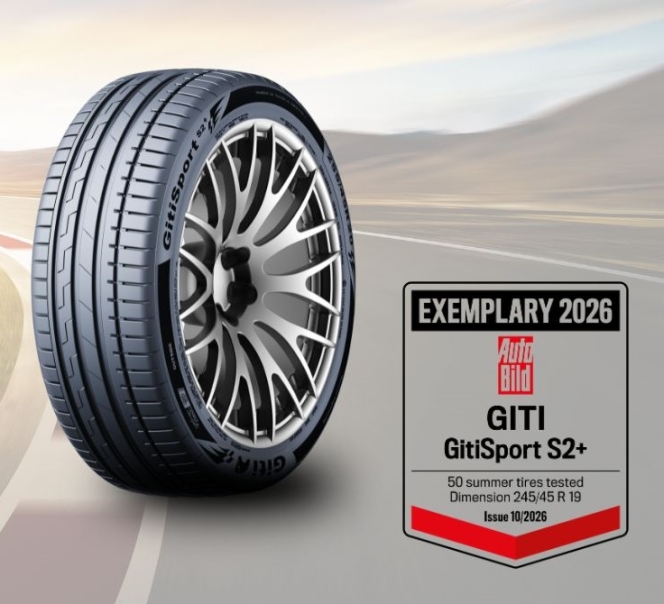
Giti Tire has launched its new ultra-high-performance GitiSportS2+ tyre, following an outstanding result in the AutoBild 2026 Summer Tyre Test, where it received one of the most prestigious independent endorsements in Europe. Rated as exemplary by the leading German publication, the tyre secured fourth place overall out of an initial field of 50 competitors. The evaluation praised its exceptional value for money, impressive driving dynamics and substantial safety margins.
Tested on a BMW 5 Series using the 245/45R19 size, the tyre initially shared fourth position based on wet and dry braking performance, recording a total stopping distance of 42.5 metres. It maintained this high standard across 12 additional assessments, ultimately ranking among the top five alongside several premium manufacturers. The new model is scheduled to be available from spring 2026, launching in 19 sizes covering rim diameters from 17 to 20 inches, widths between 225 and 255 and aspect ratios from 35 to 55.
Designed for sporty cars and powerful SUVs, the GitiSportS2+ features a newly engineered compound that reduces wet braking distances by eight percent and dry braking by two percent compared to its predecessor. It also achieves the highest possible EU Wet Grip label rating of ‘A’. In line with the manufacturer’s broader strategy, the tyre bears the AdvanZtech EV Ready sidewall marking, indicating its compatibility with internal combustion engines, mild hybrids, plug-in hybrids and battery electric vehicles.
During the initial rollout, many existing sizes of the original GitiSportS2 will remain on the market, ensuring continued coverage across the sport vehicle segment. Development took place at Giti’s European R&D Centre in Hannover, with testing and fine-tuning conducted at tracks in UK and Spain. The project leveraged the company’s AdvanZtech technology, a globally integrated research and development system.
Fabio Pecci-Boriani, Deputy General Manager – Product Planning PCR and LTR, Giti Tire R&D Centre (Europe), said, “The new GitiSportS2+ is testimony of the achievements that our engineers, testers and manufacturing facilities have been able to deliver in the area of performance while retaining the sustainability, endurance and mileage criteria that are important to the daily driver. To launch a tyre off the back of an ‘exemplary’ rating in AutoBild is nothing short of sensational; we are thrilled that one of the leading automobile titles in Europe has been able to validate and confirm our latest development and we are excited to share this news with our trusted customers.
“The target criteria for the GitiSportS2+ was to deliver further improvements in dynamic driving, enhanced control on wet roads with precise and exciting control on dry roads, all while maintaining the mileage and energy efficiency of the previous generation. Sportiveness is at the heart of the tyre with a particularly stiff design that contributes to stability at high speeds as well as in cornering. The increased grip performance goes is more precise, firm, predictable and constant.”
Halfords Appoints Jessica Jones As Director Of Fleet Solutions
- By TT News
- March 05, 2026
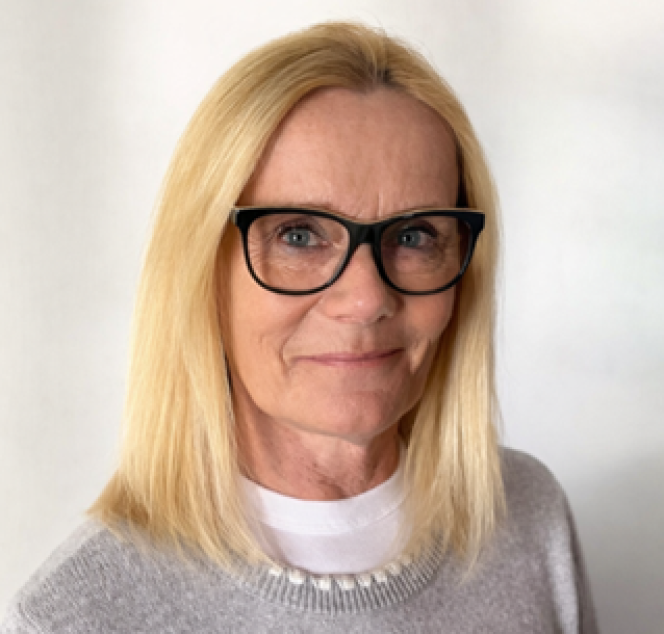
Halfords has signalled a strategic push into the B2B mobility market by naming a new leader for its fleet division. Jessica Jones is set to become Director of Fleet Solutions from the start of April 2026, tasked with accelerating growth in this area. She arrives with considerable expertise in the fleet, leasing and B2B mobility sectors, having spent her career guiding national account teams and forging strong customer relationships that have driven commercial success.
Her background encompasses strategic fleet management, business expansion and the creation of adaptable service models for corporate clients. Prior to this appointment, Jones served as Sales Director at Sixt UK and held the position of Director of National Fleet Sales at ATS Euromaster. Her recruitment underscores Halfords' commitment to developing its fleet services as a core area for expansion.
The company aims to support businesses by utilising its extensive network of garages to provide integrated maintenance and mobility services. These offerings are designed to maximise vehicle availability and assist companies in controlling operational expenditure.
Adam Pay, Managing Director of Garages at Halfords, said, “Fleet is a significant growth opportunity for Halfords, and Jess brings deep sector expertise alongside a strong track record of building high-performing teams and customer partnerships. As fleets face increasing cost pressures and operational complexity, our national scale and service capability position us strongly to support customers. Jess’s leadership will help us accelerate momentum and unlock further opportunities in this important market.”
Jones said, “I’m delighted to be joining Halfords at such an exciting point in its growth. The business combines a trusted consumer brand with a powerful national servicing network, creating real potential in fleet. I’m looking forward to working with colleagues and customers to build on the strong foundations already in place and further develop a differentiated, customer-focused fleet offering.”
Triangle Tyre Appoints Federico Parmesan As European OTR Technical Manager
- By TT News
- March 04, 2026
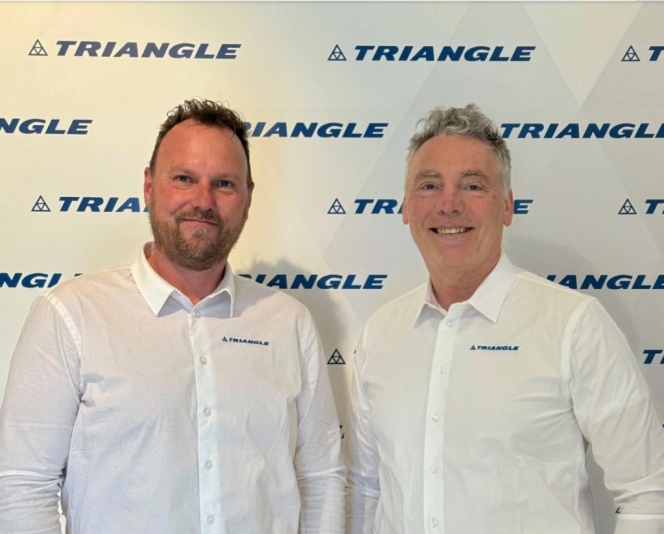
Triangle Tyre has significantly strengthened its European off-the-road operations with the appointment of Federico Parmesan as the new European OTR Technical Manager, a position he assumed on 1 March 2026. This strategic appointment represents a key milestone in the company's ongoing efforts to enhance its technical capabilities and expand its market presence across the continent's specialised tyre sector.
Parmesan brings more than three decades of tyre industry experience to his new role, with particular expertise concentrated in OTR and earthmoving applications. His extensive background encompasses not only deep technical knowledge but also a comprehensive understanding of the challenges faced by dealers and end-users operating in demanding environments. This combination of technical proficiency and practical insight positions him to effectively bridge the gap between product development and real-world application requirements.
In his new capacity, Parmesan will work closely with Triangle's partner network throughout Europe, providing support for both aftermarket and original equipment segments. His responsibilities include strengthening the company's field application expertise and contributing directly to the continued development of the OTR product portfolio. These efforts aim to deliver enhanced value and service to partners across the region.
The appointment reflects Triangle's strategic priority of reinforcing its technical structure to support ambitious growth objectives in the European OTR segment. The company seeks not merely to consolidate its existing market share but to achieve sustainable expansion while elevating support levels for its partners. Parmesan's extensive experience, energetic approach and positive attitude are expected to prove invaluable assets as Triangle pursues these goals and strengthens its position within the competitive European market.
ATF Tyres Appoints Rajesh Vyas As Vice President Of Sales And Marketing
- By TT News
- March 03, 2026

ATF Tyres, one of India’s leading manufacturers of off-highway tyres, has announced the appointment of Rajesh Vyas as its new Vice President of Sales and Marketing. Vyas brings over 25 years of global experience to the role, having worked across diverse international markets to build high-performance sales teams and enhance distribution networks.
His professional background includes leadership roles in brand positioning and product portfolio expansion within competitive sectors. Prior to joining ATF, Vyas served as Vice President at Rubber King Tyre Group. He also held key positions at Balkrishna Industries Limited as Head of Mining Tyres for India and spent a decade at Apollo Tyres Ltd as Business Head for Off-Highway Tyres.
With the company working to expand its footprint in the agricultural, industrial and OTR segments worldwide, Vyas’s strategic leadership and commercial insight are expected to support ATF Tyres in delivering performance-driven solutions across multiple regions.







Comments (0)
ADD COMMENT